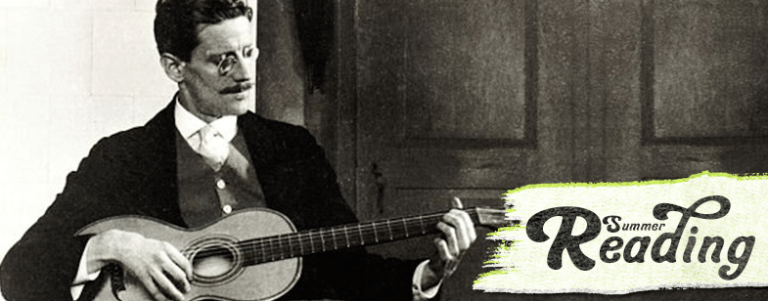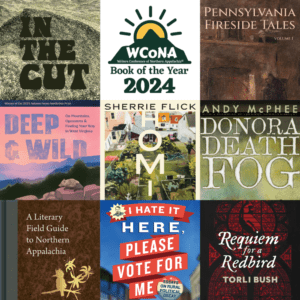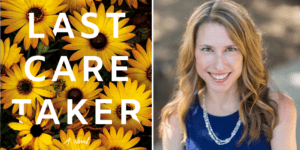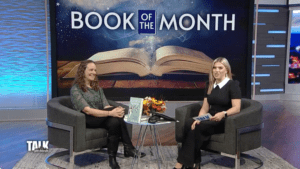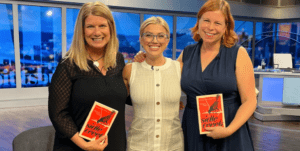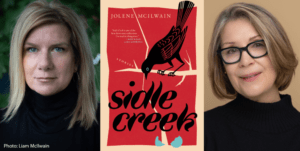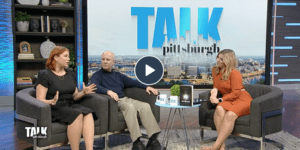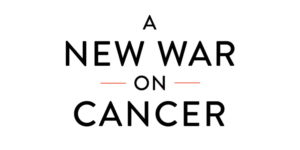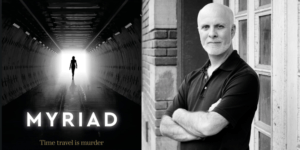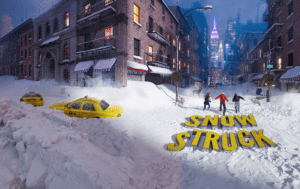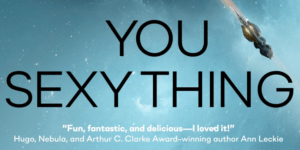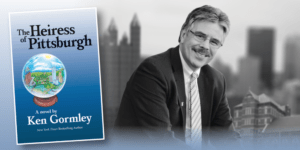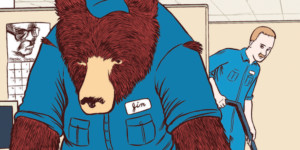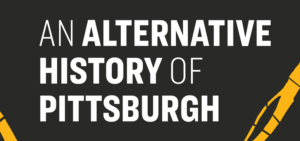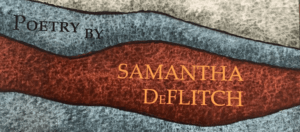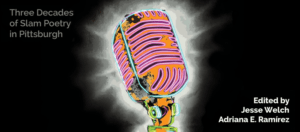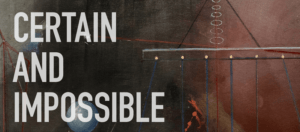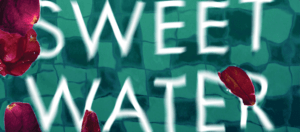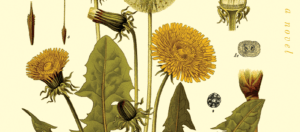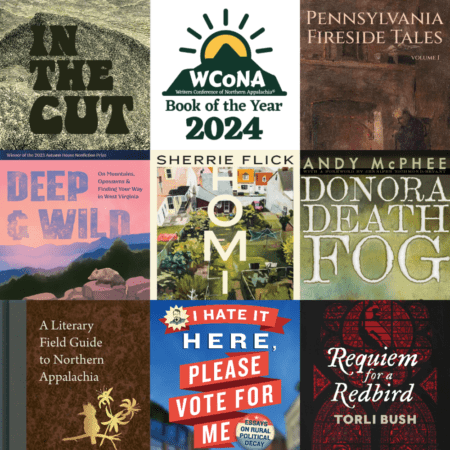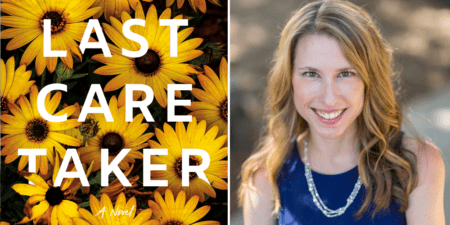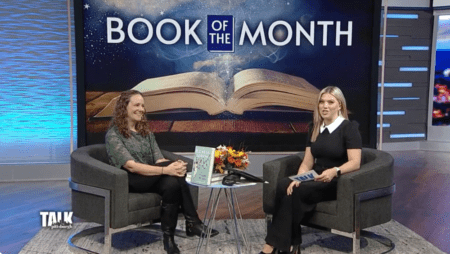There was a time when I thought I was going to be a Joyce scholar — this is Nick, by the way.
I went to graduate school for it, submitted essays to the James Joyce Quarterly (I just checked my email from 2006 to see if my seventy-five page exegesis on graveyard rats in Ulysses was ever officially rejected; they’re still waiting on a final reader’s report…).[1. This is not a joke. Sample footnote: “The grave-yard rats and the brewery rats are probably not the same rats. Although every individual rat in the text is distinct in its implications, I feel that these implications are similar enough that all the rats in the text can be collapsed into one representative group.”] I got a Portrait of the Artist-inspired tattoo. That feels like a hundred years ago now and I honestly can’t remember what I was thinking — current interests include rollercoasters, skateboarding, and middle-grade novels — but I have a special place in my heart for Leopold Bloom and Ulysses.
Recently, I’ve been trying to convince an ambitious local book club that just finished Infinite Jest — you know who you are — to give Ulysses a try, but it’s a tough sell. I even offered my copy of Don Gifford’s indispensible Annotations, the Joycean equivalent of Douglas Adams’ towel. So far: no takers.[2. I was just informed, after posting this piece, that there’s a subset of this book club that’s pushing for a Ulysses read-through “next Winter” — as a time-frame, it definitely sounds like a bluff, right?]
So what are you supposed to do on Bloomsday if you haven’t read Ulysses and aren’t ready to tackle “one of the most important works of Modernist literature”?
Littsburgh doesn’t want anyone to feel left out, so here are some non-threatening, Joyce-adjacent reading recommendations to get you in the spirit (inspired by Carnegie Library of Pittsburgh’s 90,000-book reading challenge). If you’re in the market for more recommendations, check out some amazing excerpts from local and visiting authors right here on Littsburgh!
If you’d like to celebrate with fellow fans, there are events all day, starting at 10AM!
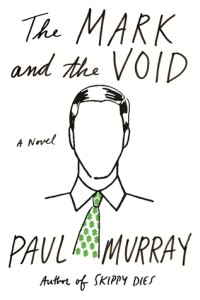 Nick recommends The Mark and the Void by Paul Murray
Nick recommends The Mark and the Void by Paul Murray
From the publisher: “Claude is a Frenchman who lives in Dublin. His birthplace is famed as the city of lovers, but so far love has always eluded him. Instead his life revolves around the investment bank where he works. And then one day he realizes he is being followed around, by a pale, scrawny man. The man’s name is Paul Murray.
Paul claims to want to write a novel about Claude and Claude’s heart sings. Finally, a chance to escape the drudgery of his everyday office life, to be involved in writing, in art! But Paul himself seems more interested in where the bank keeps its money than in Claude-and soon Claude realizes that Paul is not all he appears to be…”
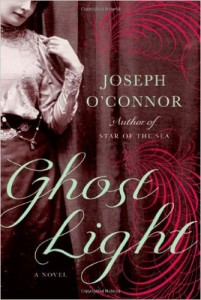 Katie recommends Ghost Light by Joseph O’Connor
Katie recommends Ghost Light by Joseph O’Connor
From the publisher: “1907 Edwardian Dublin, a city of whispers and rumors. At the Abbey Theatre, W. B. Yeats is working with the talented John Synge, his resident playwright. It is here that Synge, the author of The Playboy of the Western World and The Tinker’s Wedding, will meet an actress still in her teens named Molly Allgood. Rebellious, irreverent, beautiful, flirtatious, Molly is a girl of the inner-city tenements, dreaming of stardom in America. Witty and watchful, she has dozens of admirers, but it is the damaged older playwright who is her secret passion despite the barriers of age, class, education, and religion…”
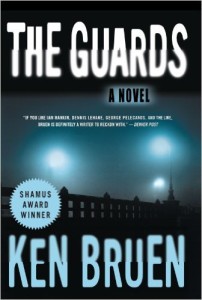 Rachel recommends The Guards by Ken Bruen
Rachel recommends The Guards by Ken Bruen
Early in my career as a book publicist, I was lucky enough to work on The Guards by Ken Bruen. It’s dark and gritty and set in Galway, staring an Irish PI…
From the publisher: “Still stinging from his unceremonious ouster from the Garda Siochana — The Guards, Ireland’s police force — and staring at the world through the smoky bottom of his beer mug, Jack Taylor is stuck in Galway with nothing to look forward to. In his sober moments Jack aspires to become Ireland’s best private investigator, not to mention its first — Irish history, full of betrayal and espionage, discourages any profession so closely related to informing. But in truth Jack is teetering on the brink of his life’s sharpest edges, his memories of the past cutting deep into his soul and his prospects for the future nonexistent.
Nonexistent, that is, until a dazzling woman walks into the bar with a strange request and a rumor about Jack’s talent for finding things. Odds are he won’t be able to climb off his barstool long enough to get involved with his radiant new client, but when he surprises himself by getting hired, Jack has little idea of what he’s getting into…”
Image: James Joyce in 1915. Photo via the Cornell Joyce Archive/Wikimedia Commons.


